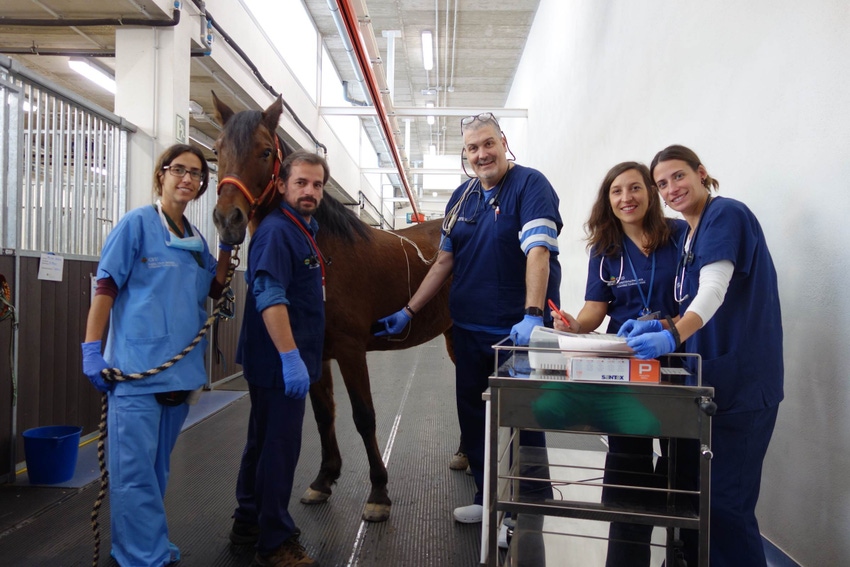Telemedicine and mobile phone apps may be used as tools for monitoring horse health and conducting diagnostic testing.
November 27, 2018

A team of professors from the Faculty of Veterinary Medicine of the CEU Cardenal Herrera University (CEU UCH) in Valencia, Spain, has validated an application that makes it possible to carry out electrocardiograms on horses with a mobile phone.
The results of this study have been exhibited at the annual congress of the European College of Equine Internal Medicine (ECEIM), which was held in Ghent, Belgium, and brings together the main international specialists in the field of equine medicine.
The study, conducted by CEU UCH professors Ignacio Corradini, Javier Enguel, Alicia Fernández and Marta Barba, will soon be published in an international scientific journal in the field of equine medicine.
Veterinary medicine professor Ignacio Corradini, head researcher of the study, said health monitoring apps are not only more present in the daily lives of people, but they also have growing uses in the field of veterinary medicine.
“With this research, we have shown that telemedicine and mobile phone apps can now also be used as tools for monitoring the health of horses and conduct a key diagnostic test such as an electrocardiogram. Conducting this test normally requires taking the horse to a veterinarian hospital. Now, a field veterinarian, with their own phone, can conduct the electrocardiogram and send it digitally to the veterinarians who specialize in equine cardiology for their assessment,” Corradini said.
In the study, conducted by the CEU UCH professors in the university's Clinical Veterinarian Hospital, the accuracy of the application was evaluated on both sides of the thorax to detect arrhythmias on a total of 50 horses with and without prior arrhythmias.
“The results have been excellent: the mobile phone has shown high sensitivity for detecting and characterizing the cardiac arrhythmias of horses. There is great potential with this type of applications, but the main benefit of the application is that it favors an earlier detection of arrhythmias before it is too late to reverse or improve them,” Corradini explained.
Furthermore, the app will enable veterinarians to add the electrocardiogram as a common test during a routine checkup or before acquiring an animal, during the visits to a clinic. Although, as Corradini emphasized, “an electrocardiogram is an electrophysiological test that requires great experience to be appropriately interpreted, and therefore, although the field veterinarian can obtain an electrocardiogram with this app, it is of vital importance for the test to be sent to a specialized equine cardiologist to be assessed.”
The study also concluded that the mobile phone-based electrocardiogram, due to its limitations, should not completely replace the electrocardiogram that is conducted in a hospital. “The equipment used in hospitals is more sensitive and would noticeably enhance the initial information provided by the mobile phone electrocardiogram. This is why, if an arrhythmia is detected on a horse, the test should be repeated with a more sophisticated device in a hospital with specialists in equine internal medicine to confirm the result,” Corradini added.
You May Also Like
.png?width=300&auto=webp&quality=80&disable=upscale)


